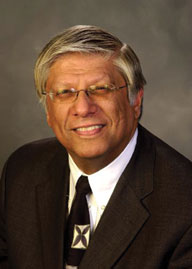In the second of three articles on getting the most from your practice, Optician examines what specialist business consultants have to offer.
In Part one of this series (March 31) we looked at tracking the performance of your practice, the seven Ps and factors to consider when choosing external consultants to help develop your business.
This week, Optician examines the various business consultants specialising in optical practice, their background and the services they provide.
 EROS BUSINESS CONSULTING
EROS BUSINESS CONSULTING
Established in 1998, Eros Business Consulting is run by optometrist Bob Hutchinson, who has spent 25 years in retail and wholesale optics. A former chairman of the Federation of Ophthalmic and Dispensing Opticians, Hutchinson helped secure a national apportionment system for VAT. More recently, he has worked with government, statutory bodies and health contractors on clinical governance issues.
Eros is based in Suffolk and has worked with a variety of clients, from Specsavers and medium-sized multiples, to smaller groups and sole traders. Hutchinson also advises optical manufacturers and service providers.
Target markets in the retail sector are start-ups, existing businesses wanting a health check to improve growth, and practices in need of trouble-shooting. Eros also offers help with the sale or purchase of a business and with banking facility discussions.
The company has a network of associates offering advice on marketing, finance and tax planning, web management and IT, HR and investment.
Huchinson says that each client assignment starts by positioning the business, its owners and staff against known industry norms. Frank discussions from top down identify the strengths and weaknesses of the business and provide the opportunity for the whole team to buy in to the changes required.
'Eros looks at every part of the current business from financial set-up and VAT apportionment, to stock control and product mix. After identifying and prioritising the key areas for improvement we agree them with the owner/manager and provide them with help to help themselves,' he says.
'We often advise putting in place reliable and informative practice management software that will save time and money and provide practices with the figures they need. Only when you can measure the business do you know the engine is fine-tuned, and only then is the time to consider marketing.' For more specific issues such as VAT, Hutchison will negotiate for clients with local VAT officers.
Hutchison advises practices against letting consultants immediately change the way the business is run. Improvements in marketing are often worthwhile but not necessarily the first task. 'You already have a core business, so why not try to improve that first?'  HIRJI ASSOCIATES
HIRJI ASSOCIATES
Midlands-based Hirji Associates was established in1996 by Professor Nizar Hirji, who is also its principal consultant. He has optometric, academic and business qualifications and experience in a variety of senior posts over 30 years.
A practising optometrist, Hirji is personally involved in each project. The consultancy process begins with a systematic audit of the business: analysis of the practice's market, patients and customers, competitors and suppliers, and a review of its objectives and strategy. Hirji then examines the capability of the practice to implement any agreed strategy and its ability to analyse, plan and control the business. Reviewing the profitability of the products and services offered, their cost effectiveness and the marketing mix, is a key part of the process.
Audit starts with the owner/manager supplying strategic, operational and financial information before any meeting or visit takes place. This information could include trading accounts, day-to-day activity reports, samples of promotional activity, methods of scheduling patients, the range of products/services offered, details of the staff and their skills/training, and any special supplier arrangements. Clients are asked about the challenges facing the business and the outcomes they are looking for. A practice visit is then scheduled.
An audit on a single-practitioner practice is normally conducted within half a day, although the larger the business the longer the visit. An additional day is allowed for analysis and reporting.
Hirji says that his company offers no 'quick fixes'. 'We don't confine ourselves to a limited aspect of the practice, such as key financial drivers, and then provide off-the-shelf answers, nor do we offer "one size fits all" marketing or training solutions.
He explains that solutions to maximise the practice potential can include anything from simply re-organising the appointment scheduling, to more complex re-engineering of the business. Audits often identify multiple factors for maximising potential, such as the introduction of new skills, retraining staff, revision of fees and charges, or a need to articulate and communicate a clear strategy.
Register now to continue reading
Thank you for visiting Optician Online. Register now to access up to 10 news and opinion articles a month.
Register
Already have an account? Sign in here
